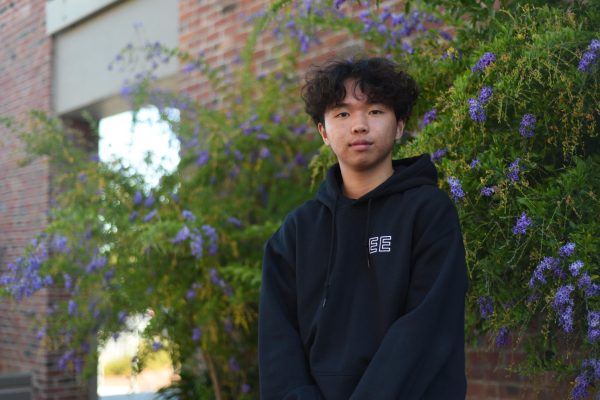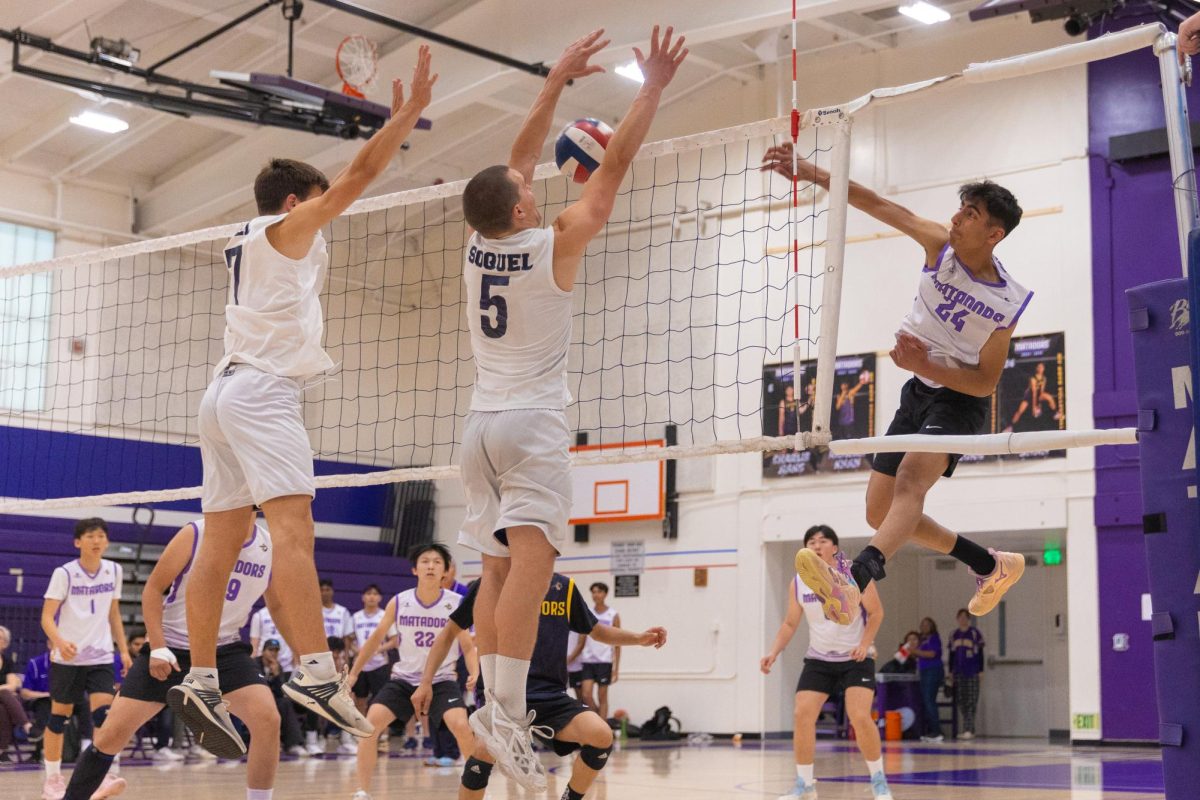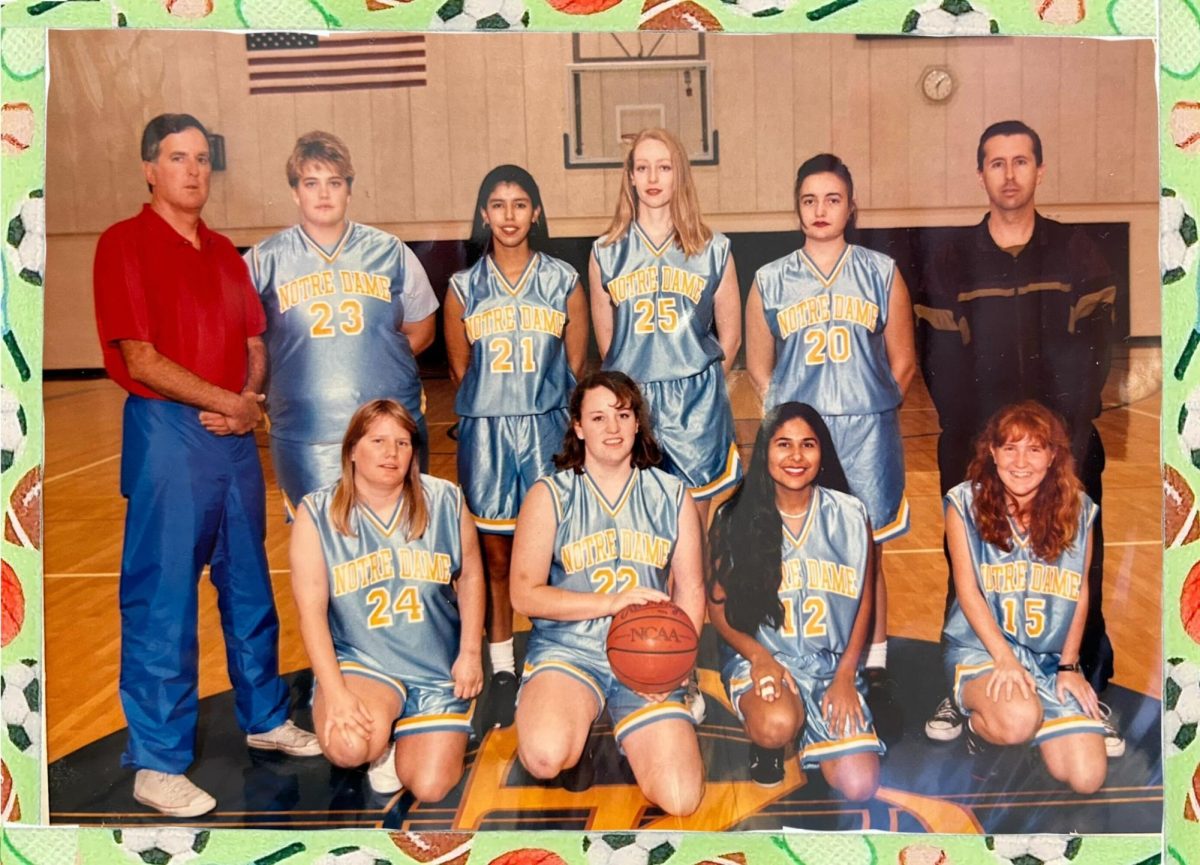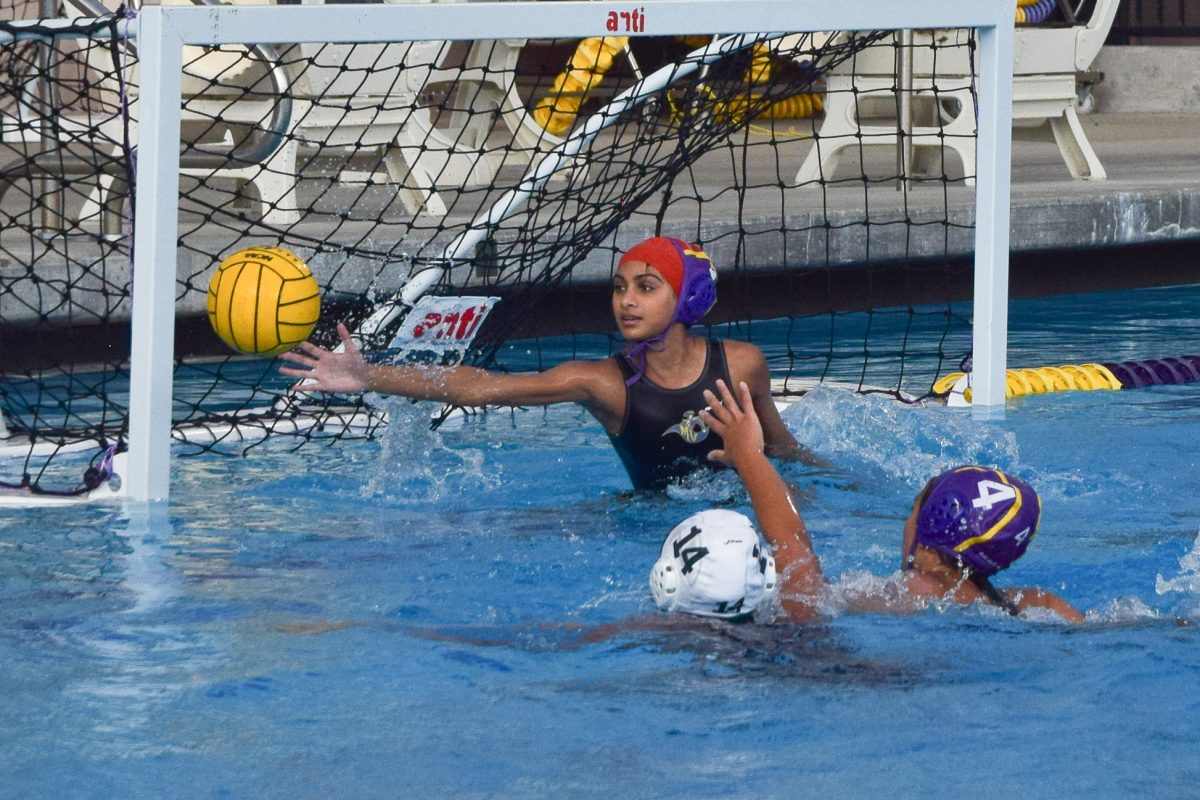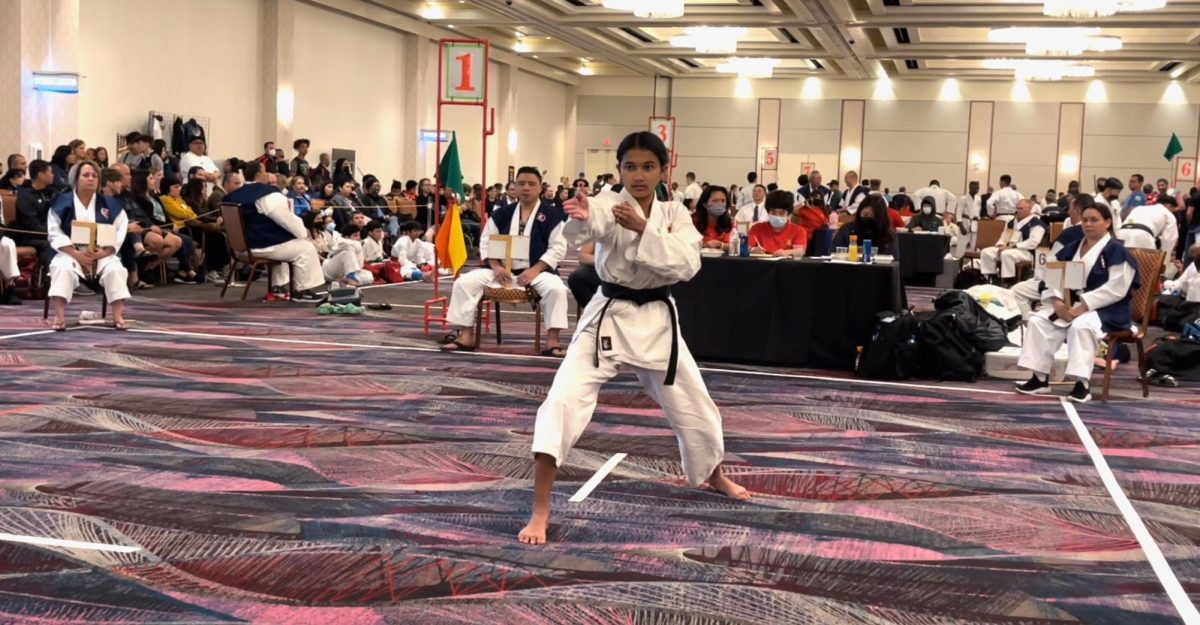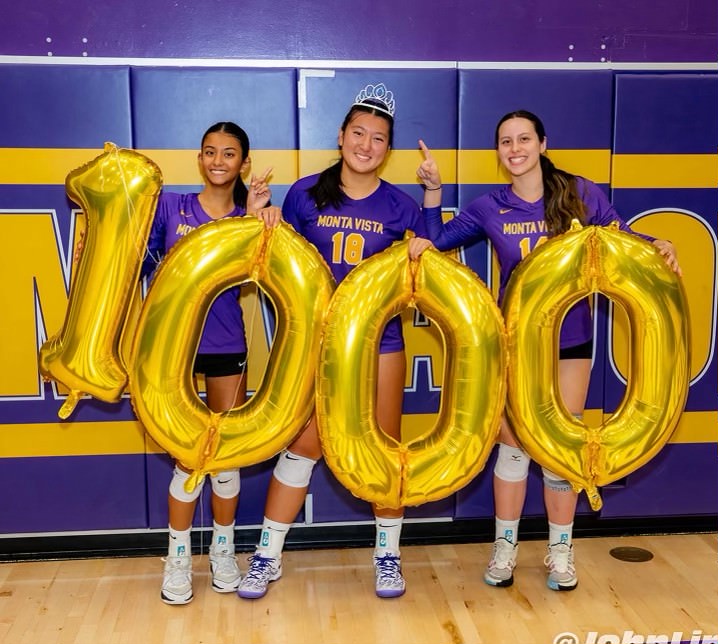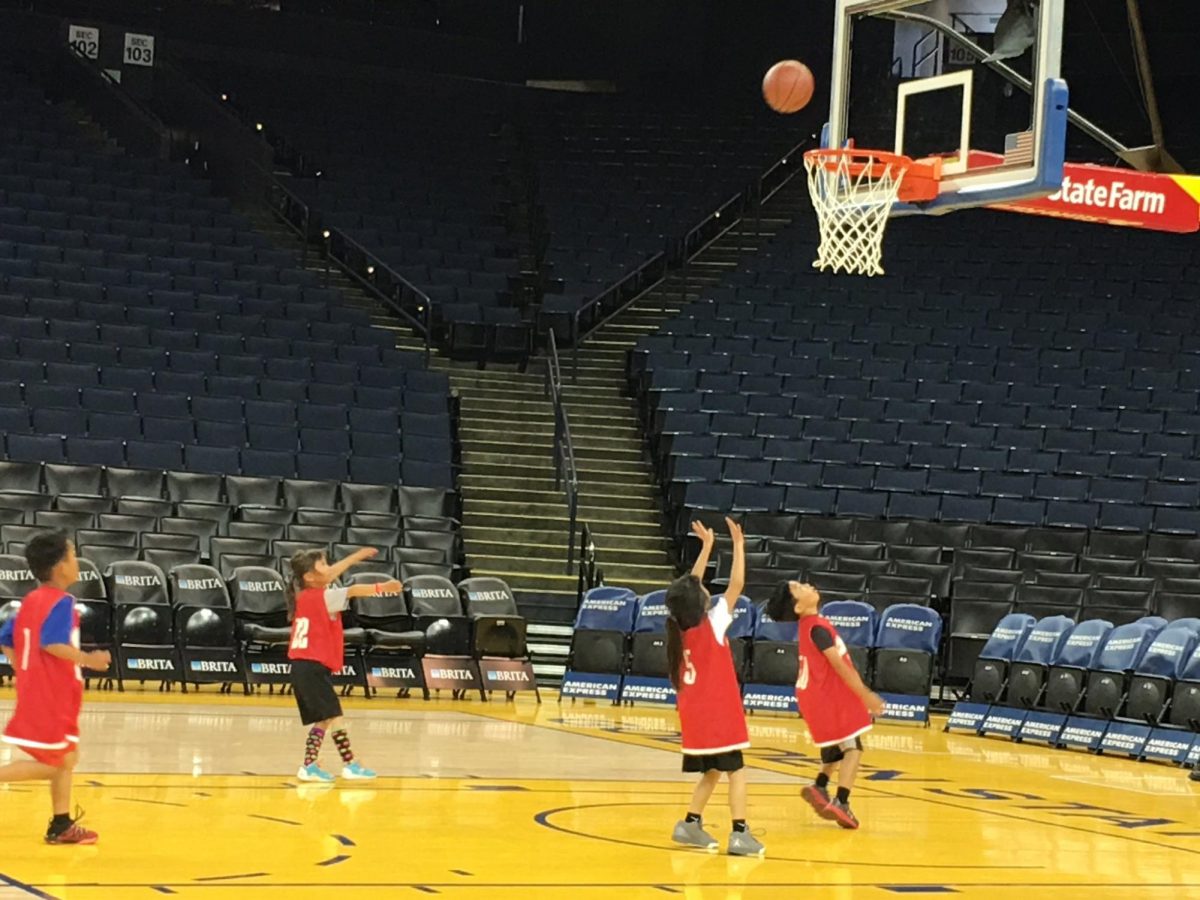Before entering the spotlight, junior Kimika Shimazaki jumps up and down, easing out her nerves. Wiping the sweat off her hands, she twirls her baton lightly to feel the confidence of her mastery of the object. Her performances mainly consist of competitions and parades, but she likes to take any opportunity she gets to perform, such as the Welcome Back Rally and during halftime of a Girls Volleyball game.
This confidence is a feeling that Kimika has gained over the years through practice and repetition. Her first time twirling a baton dates back over ten years when her friend introduced her to the sport at the age of five. Paige Campbell, the Director of the Valley Baton Club and Kimika’s baton twirling coach, says that when Kimika first joined, she didn’t speak much and had a shy demeanor. According to her, not only does baton twirling give Kimika an avenue for having fun and engaging in competitions, but it also allows her to break out of her shell.
“I can remember the first time she said my name and I was shocked,” Campbell said. “I feel like our sport really gives a lot to children because you have those opportunities to perform and it gets you out of your comfort zone. It was a good opportunity for Kimika to take risks in a safe environment and explore not only her vocabulary but also her talents.”
Through the sport, Kimika says that her interactions with her coaches and teammates have allowed her to push her boundaries, and Campbell says that Kimika nurtured important skills as she overcame her obstacles.
“What’s really great is that since she was a shy child herself when she was really little, she has the patience to help our younger athletes,” Campbell said. “She’s multilingual so she can speak Japanese to some of our athletes and translate what they were saying to me. That’s really unique — to be a coach who can help with our athletes that come from Japan.”
Chikako Shimazaki, Kimika’s mother, adds that the sport allowed Kimika to connect with other children who are the same age as her and with similar interests. According to her, Kimika has grown closer to her teammates through different baton twirling activities and made many friends.
“My teammates are one thing keeping me going in this sport,” Kimika said. “I’ve been together with them since I was five. We stick together and continue to do the sport and I enjoy it a lot. We get to do parades and contests and I guess overall the community’s just really nice and everybody’s familiar with each other.”
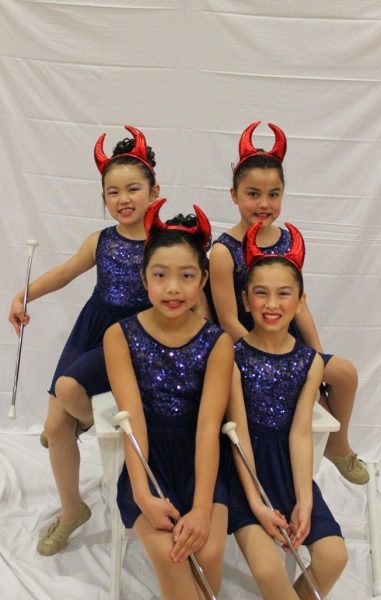
Throughout her years in the sport, Kimika has also built up her leadership skillsand helps younger athletes work on their skills. Campbell has seen how Kimika has honed in on such soft skills, and admires her commitment to the sport.
“Kimika’s a super hard worker and I love that she’s somewhat of a quiet observer,” Campbell said. “She’s always looking and seeing what’s happening, processing things and taking it in, and then she shares that knowledge with our younger athletes that are coming up here. She loves being a role model. She just recently took it upon herself at 16 to get certified as a coach within our national organization, so she’s a registered level one coach and leading classes with me now.”
Along with patience and leadership, baton twirling requires a lot of hours for practice and competitions, pushing Kimika to manage her time wisely. As she is also a member of the Varsity Girls Basketball team, Kimika finds herself dedicating a lot of time to practicing sports each week. Chikako says that with competitions and games throughout the overlapping seasons, there is a lot that goes into preparing for and traveling to these events.
“Some competitions are far, far away,” Chikako said. “Kimika’s dad has to drive two hours to the competition to arrive at 7 a.m. There is also the time needed for Kimika’s hair, makeup and costume, so we have to wake up very early, 3 or 4 a.m. sometimes.”
Kimika says that both Chikako and Kimika’s dad, MVHS English teacher Shozo Shimazaki, have been integral to Kimika’s baton-twirling journey. For competitions, Kimika wears costumes that can often end up being expensive, so Chikako sets time aside to buy costumes and craft more elaborate designs on them. Chikako finds inspiration for the design and places gems, one by one, onto the leotard in a similar fashion.
Her parents accompany her to all of her competitions, driving or flying with her depending on where the competitions take place. With the help of her parents, coaching staff and teammates, Kimika prepares for and competes at numerous national and international tournaments every year.
“Entering these national and international competitions is a good experience for her,” Chikako said. “She’s meeting others from different countries who are doing the same sport as her and she’s also working as a team with her friends.”
Kimika shares a similar sentiment, as out of the many years of baton twirling experiences she has, her most memorable moments come from competition.
“One of my favorite moments was when I went to Ohio for a national baton contest with my partner,” Kimika said. “We did a pairs routine and got first place. It was a very memorable moment because it was a national contest and it’s usually hard to achieve a high place.”
Another one of Kimika’s favorite experiences comes from when she was in Florida for a parade at Disney World and Kimika had the opportunity to throw the baton in a central performance space of the amusement park. Kimika felt it was unforgettable and she remembers smiling while performing in front of crowds. Similarly, Campbell’s proudest moment with Kimika also comes from a different competition in Florida. In 2017, Kimika’s team of four athletes all went to Florida for a big competition called Twirl Mania. According to Campbell, they didn’t have much competition experience yet and weren’t sure how well they’d place.
“When the award ceremony came, they announced the top three teams,” Campbell said. “They said the third-place winners and then the second-place winners so we thought we didn’t place at all. But then first place was announced and you could just see the joy on their faces. That was one of the first moments they really trained hard for and it paid off. It was even greater because our club’s motto is ‘hard work pays off.’”
Campbell recalls being very emotional when the winners were announced and still is to this day when the subject is brought up. For her and Kimika, winning the competition brought them absolute joy. Campbell remembers screaming with Kimika at the top of their lungs while celebrating their first place.
“As a coach, you try to train your athletes to be their best and try to help them have the right mindset,” Campbell said. “For them to be 10 and 11 years old and out there trying to do what I’ve asked them to do and for it to really play out the way it’s supposed to, it’s an overwhelming experience. What I think was the best is that the four of them brought that experience back to our club and now they inspired more people to be better and challenge themselves at an international competition.”
After high school, Kimika hopes to continue baton twirling in college and has already attended workshops at universities such as the University of Arizona. As she enters more competitive environments within the sport, she wants to continue finding enjoyment in the things that have kept her going for the past 11 years and hopes to see more individuals taking an interest in the sport.
“I love how the atmosphere is really friendly,” Kimika said. “Even if you go to a different place like Arizona, you can find baton twirlers there and any baton twirler is really nice. It doesn’t even matter how good you do since it’s a very small sport. They’re very welcoming and there are always opportunities to get better and join a team.”






